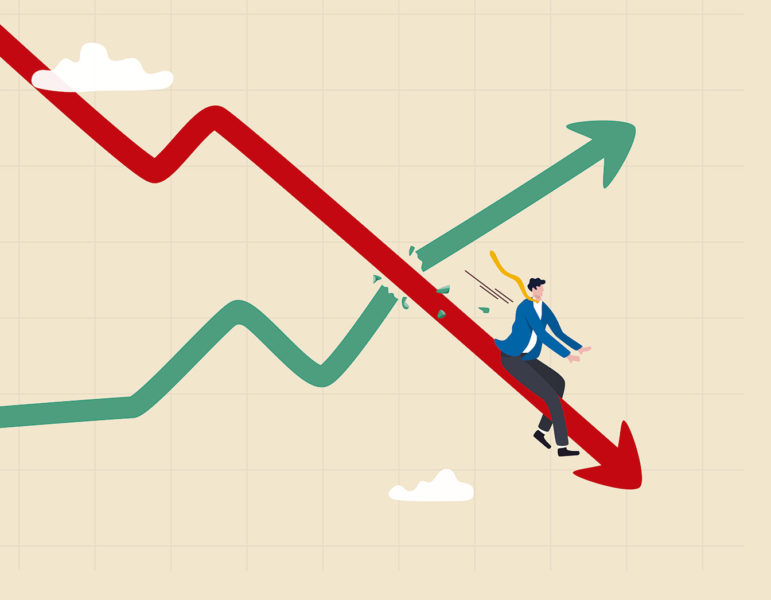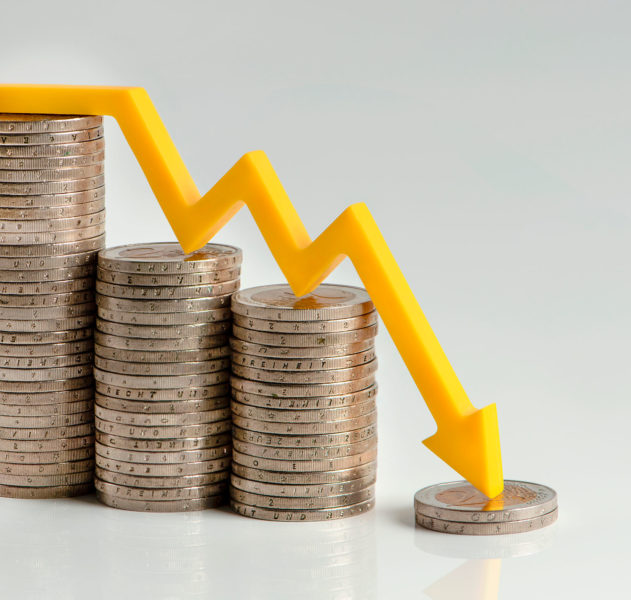

How the economic downturn will affect us
The bad news is piling up and more than a third of the world’s economies are expected to shrink by 2023. Individuals and businesses will face reduced economic activity, job losses and a general decline in incomes in the coming months.
The worst is yet to come. This is the prevailing view in global economic circles as negative news accumulates in a spiral that seems to have no end in sight. Experts agree that global economic activity is experiencing a sharper-than-expected slowdown.
According to the latest forecasts of the International Monetary Fund (IMF), global growth will slow from 6.0 % in 2021 to 3.2 % in 2022 and 2.7 % in 2023. This is the weakest advance since 2001, with the exception of the global financial crisis and the acute phase of the pandemic. More than a third of the world’s economies will contract next year.
The cost-of-living crisis, tightening financial conditions in most regions, the war in Ukraine and the aftermath of the pandemic weigh heavily on this outlook.
Bad forecasts
On this score, it is almost all bad news: the IMF expects global inflation to rise from 4.7% in 2021 to 8.8% in 2022, although it would fall to 6.5% in 2023 and 4.1% in 2024; the European Central Bank (ECB) raised interest rates aggressively again last week, bringing them to 2%; there is no end in sight in the short term to the war in Ukraine, with the nuclear threat in the background; and China persists with its policy of confinement to curb COVID-19 contagions, which continues to damage global supply chains.
As for the situation in Spain, the forecasts are even worse: the IMF estimates that growth will fall from 5.1 % in 2021 and 4.3 % in 2022 to just 1.2 % in 2023, eight tenths of a percentage point less than forecast in July. For the time being, it is already a fact that unemployment rose in Catalonia in the third quarter of the year to 9.31%.
Companies facing a poorer world
An economic crisis like the one looming affects us in many ways: reduced economic activity, job losses and a drop in income that leads to a slump in consumer spending and business investment. Indeed, the IMF warns that poverty is on the rise again and 345 million people are already food insecure.
During an economic downturn, aggregate demand declines, which translates into lower sales for most businesses. Cyclical sectors, such as manufacturing and energy, tend to experience particularly sharp declines.
Companies with high fixed costs are particularly hard hit. Many are opting to cancel investments and make redundancies to reduce costs and adjust their size to falling sales. The problem is that rising unemployment further depresses demand. In this regard, the IMF estimates that the loss of global output will reach four trillion dollars by 2026, a figure equivalent to the size of the German economy.
Credit crunch
Another effect of crises on business is the tightening of credit conditions, as lenders become more selective about taking risks because of uncertainty. As a result, we are more likely to be refused a loan and, if the financial institution approves it, we will have to pay more interest.
In addition, the latest ECB rate hikes mean that the repayments on loans previously taken out at variable interest rates will increase. And bear in mind that corporate debt relative to the size of the economy has risen dramatically since the early 1980s, driven by low interest rates. All this leads to an increase in default and bankruptcies.
SMEs hit hardest
The crisis is affecting both large and small companies, although the larger ones have more market power, a larger financial cushion and more scope for cost-cutting. Therefore, SMEs, which generate more than 60% of GDP and employment in Catalonia, tend to be the hardest hit by economic crises.
Unlike listed companies, small firms cannot raise funds by selling shares or issuing bonds, nor can they lobby the government for aid. They are therefore particularly vulnerable to the spikes in bankruptcies associated with each crisis.
Lower quality of life
The reduction in the wealth of companies and individuals translates into a reduction in state revenues, so public services also suffer. The overall result is a poorer quality of life for citizens, which can affect their health.
Not surprisingly, the difficulties in coping with rising mortgage repayments caused by rising interest rates or filling the shopping trolley in the face of rampant inflation take their toll. Just as stressing about our future in the face of economic uncertainty takes a toll on our health.
Recessions and, in particular, rising unemployment have been shown to increase rates of mental and chronic illness. A study of Pennsylvania workers in the 1970s and 1980s even shows that those who lost their jobs had higher mortality rates in later years.
If you want to discover the best option to protect your savings, enter Preciosos 11Onze. We will help you buy at the best price the safe-haven asset par excellence: physical gold.
Leave a Reply
You must be logged in to post a comment.





Gràcies!
Moltes gràcies per l’actualització d’informació👍
Gràcies a tu per ser-hi i per fer-nos costat, Jordi!!!
Molt bon article
Celebrem que t’hagi agradat, Manel, i moltes gràcies pel teu comentari.
Es un decreixement planificat? No és pas l’esclat d’una bombolla financera ni immobiliària, ni el final d’alguns “feliços anys 20″del segle passat o dels primers vuit d’aquest, que van portar a un campi qui pugui.
L’ actual situació és més subtil, sense grans i escandalosos titulars. PIB, percentatges, índexs i excuses de mal pagador.
Un altre cicle econòmic per estudiar a les facultats d’economia, i qui rep, rep.
Gràcies per posar-nos en guàrdia.
Moltes gràcies pel teu extens comentari, Mercè.